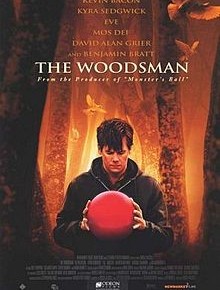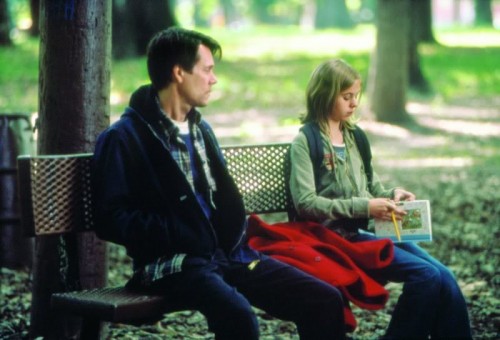
“Forgiveness is the name of love practiced among people who love poorly. The hard truth is that all people love poorly. We need to forgive and be forgiven every day, every hour increasingly. That is the great work of love among the fellowship of the weak that is the human family.” –Henri Nouwen
“…God’s grace and forgiveness, while free to the recipient, are always costly for the giver…. From the earliest parts of the Bible, it was understood that God could not forgive without sacrifice. No one who is seriously wronged can “just forgive” the perpetrator…. But when you forgive, that means you absorb the loss and the debt. You bear it yourself. All forgiveness, then, is costly.” – Tim Keller
 Currently, there are two people whom I have, consciously, not forgiven. I know I haven’t forgiven them because whenever their names come randomly (or not-so-randomly) to my mind, that old angered wound festers inside of me again and I go through the litany of things I would love to say to them—whether I would really say it to them or not in reality. I get bent out of shape and worked up and nasty just thinking about their “crimes” and they, wherever they may be, know not of the ill will I wish of them. They remain unharmed by my faulty telekinetic powers of resentment, while, at the same time, I suffer from the internal bleeding caused by my lack of forgiveness. I’m starting to think part of me wants to continue to bleed out as long as I don’t have to face them and/or love them. Loving them requires a denial of what I perceive as my need for justice.
Currently, there are two people whom I have, consciously, not forgiven. I know I haven’t forgiven them because whenever their names come randomly (or not-so-randomly) to my mind, that old angered wound festers inside of me again and I go through the litany of things I would love to say to them—whether I would really say it to them or not in reality. I get bent out of shape and worked up and nasty just thinking about their “crimes” and they, wherever they may be, know not of the ill will I wish of them. They remain unharmed by my faulty telekinetic powers of resentment, while, at the same time, I suffer from the internal bleeding caused by my lack of forgiveness. I’m starting to think part of me wants to continue to bleed out as long as I don’t have to face them and/or love them. Loving them requires a denial of what I perceive as my need for justice.
It is in these moments I am reminded of two films which have torn me apart emotionally in their depiction of forgiveness given and received, the cost taken and the grace given: Around the Bend and The Woodsman. Released in 2004, both of these relatively unsung movies find their cinematic resolution of tension in moments of forgiveness. Unlike many of their Hollywood counterparts, the wrongdoing that is being forgiven is not the sympathetic kind; these are visceral and even horrific instances of what can only be called sin–which is precisely why they are so powerful and unsentimental (and also probably why neither did very well at the box office).
The Woodsman is the story of a recently paroled child molester who finds himself confronted by his own unrelenting demons and unforgiving co-workers and cops. Kevin Bacon plays Walter, the quiet and tormented parolee, who, at every turn, is reminded of what he has done and, even more so, who he is. He definitely cannot forgive himself, and no one else seems to be able to either. His brother-in-law, warily, and his female co-worker (and lover), Vicki, even after she finds out the truth about Walter and reveals her own past of molestation at the hands of her brothers, seem to be the only ones who can stand the sight of him. Most people in the film are more akin to Sgt. Lucas (Mos Def), an unrelenting cop, who is dead set on catching Walter in the act again, convinced that he will slip up.
 And he nearly does. A shiver runs down my spine just thinking about the scene where Walter is sitting on the park bench with Robin, the young birdwatcher, whom he has set his sights on and followed into the park. When Walter resorts to his old tricks to lure her in, he notices something different in her eyes. She is well aware of what his actions mean. Her father has done similar things and shamed her already. At that point, he is seen, through her eyes, and known for what he truly is. After a lengthy period of tension in the dialogue, both verbal and non-verbal, and the shamed Walter refusing to give in and break this already broken girl, he tells her to leave the park. Robin, in tears at this point, comes over and hugs Walter around the neck, innocently, and walks away. (You can watch it here, though be warned, this is about as heavy as it gets). Both Vicki and Robin, in their own ways in the film, are confronted with the reality of who Walter is, and are able to begin to forgive their victimizers, vicariously, through the love and forgiveness they show toward Walter. As the movie attests, Walter, though far from healed, is changed by these interactions in a profound way.
And he nearly does. A shiver runs down my spine just thinking about the scene where Walter is sitting on the park bench with Robin, the young birdwatcher, whom he has set his sights on and followed into the park. When Walter resorts to his old tricks to lure her in, he notices something different in her eyes. She is well aware of what his actions mean. Her father has done similar things and shamed her already. At that point, he is seen, through her eyes, and known for what he truly is. After a lengthy period of tension in the dialogue, both verbal and non-verbal, and the shamed Walter refusing to give in and break this already broken girl, he tells her to leave the park. Robin, in tears at this point, comes over and hugs Walter around the neck, innocently, and walks away. (You can watch it here, though be warned, this is about as heavy as it gets). Both Vicki and Robin, in their own ways in the film, are confronted with the reality of who Walter is, and are able to begin to forgive their victimizers, vicariously, through the love and forgiveness they show toward Walter. As the movie attests, Walter, though far from healed, is changed by these interactions in a profound way.
[youtube https://www.youtube.com/watch?v=-fIFa9RcCmI&w=600]
Around the Bend is the story of the the Lair family. As his dying wish, family patriarch Henry (Michael Caine), sends his son, Turner (Christopher Walken), his grandson, Jason (Josh Lucas), and his great-grandson, Zach, on a journey to resolve buried tension and estrangement in the family. He devises a series of seemingly ludicrous clues, along with a map, which lead the three generations on a trip where they are forced to rehash and heal the familial problems that have lain dormant underneath their relationships (or lack thereof) for many years. With each place these hapless pilgrims visit and each conversation they have, the audience and Jason come closer to the revelation that will define the family dynamics from then on.
 The whole movie builds toward the final destination—a humble adobe apartment in Albuquerque, New Mexico—where Turner, broken down, shamed and in tears, reveals his reasons for not being present in Jason’s life. Turner, on drugs, threw his son, Jason, down the stairs of the apartment; the very event that led Jason to have a permanent limp for the rest of his life. Turner’s anguish over his actions led to the estrangement from his own son. He could not look upon him without guilt flooding and drowning him in the process. Jason, after the revelation is made in an intense scene between father and son at the stairway, decides to forgive his father’s terrible transgression.
The whole movie builds toward the final destination—a humble adobe apartment in Albuquerque, New Mexico—where Turner, broken down, shamed and in tears, reveals his reasons for not being present in Jason’s life. Turner, on drugs, threw his son, Jason, down the stairs of the apartment; the very event that led Jason to have a permanent limp for the rest of his life. Turner’s anguish over his actions led to the estrangement from his own son. He could not look upon him without guilt flooding and drowning him in the process. Jason, after the revelation is made in an intense scene between father and son at the stairway, decides to forgive his father’s terrible transgression.
His forgiveness is shown when Jason takes his dying father, whose kidneys gave out 6 months before, to the place near Mexico—Turner’s original destination when he shows up at the beginning of the movie to “stop by”—where Turner and Jason’s mother, unbeknownst to Jason, consummated their relationship and conceived Jason, i.e. the exact act of sacrificial kindness that Turner, after permanently injuring his son and disappearing from his life, did not deserve according to anyone’s accounting, especially his son’s. In the end, we see that because of this act of forgiveness Jason and his son may be able to let go of their broken past and find some joy and peace in their lives.
I am haunted by these stories when I think on what the Scriptures say about forgiveness. In neither film do those wronged just magically say the words ‘I forgive you’ and everything is suddenly restored. Forgiveness is a costly endeavor. Vicki, Robin and Jason have all suffered the full, tangible weight of the wrongdoing and are somehow given to turn away from revenge and retribution and, instead, love their enemy instead. Indeed, forgiveness happens at the moment when the offender is seen and known for what they are, broken and sinful, and, yet, shown compassion and love in response. Just as Christ’s forgiveness–which came at an enormous cost to himself –showers us, at our worst, with mercy, the forgiveness in these films illustrates the real life implications of that grace in a world full of people who love poorly, including myself.
[youtube https://www.youtube.com/watch?v=XiZLtromCJY&w=600]

COMMENTS
3 responses to “For Those Who Love Poorly: Forgiveness in The Woodsman & Around the Bend”
Leave a Reply













What an incredible post, Blake–you left me in a puddle on the ground. That clip from The Woodsman is almost too much to handle. I remember seeing that movie years ago when it came out and being just as stunned then. Might be Kevin Bacon’s greatest performance?
Thanks, DZ. I think this role could easily be Bacon’s best performance. This movie just rendered me completely helpless. It was the first time that I realized that maybe forgiveness was not just for those that I loved already, but for those who are unloved, or even hated. It was a shot of grace to my soul for sure.
Great post! But as far as K. Bacon’s performances go, let’s not forget this landmark scene from 1986’s Quicksilver: http://www.youtube.com/watch?v=0RzROpuOv9E